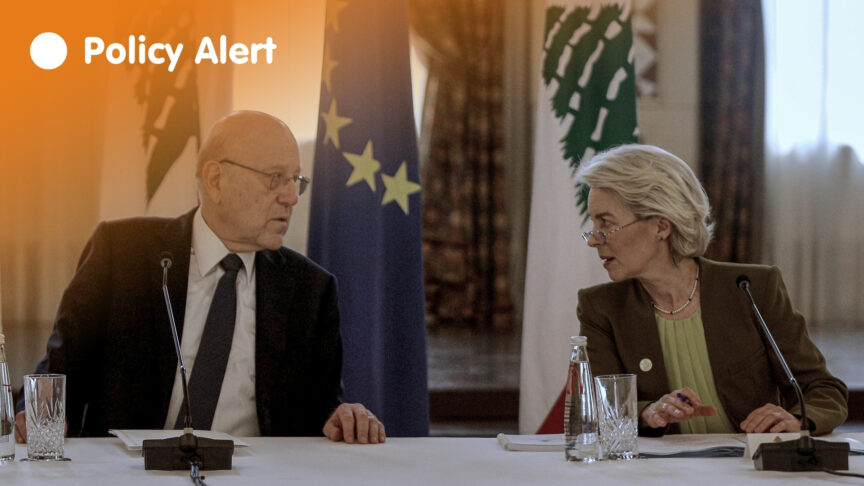Europe should help stand-down Zimbabwe’s soldiers
As Europe waits to see whether Zimbabwe restores democracy, the bloc should prepare options for an SSR-specific ESDP mission.
The Zimbabwe ruling ZANU-PF and the opposition Movement for Democratic Change (MDC) seem close to agreeing the details of a power-sharing set-up after President Robert Mugabe, MDC leader Morgan Tsvangirai and Authur Mutambara, leader of an MDC faction, concluded a political agreement.
But considerable challenges exist before Zimbabwe's transition can be secured. And the EU remains cautious on lifting Zimbabwe sanctions until President Mugabe shows he is genuinely willing to restore democratic rule. But behind the scenes the EU ought to draft options for working with an African partner on the reform of Zimbabwe's security sector.
Zimbabwe has undergone a protracted period of organized violence and intimidation by the Mugabe regime, working partly through the security sector. The security forces, intelligence services, and an array of government-backed militias have terrorized civilians, committed gross human rights violations, and been deployed to infiltrate and disrupt the opposition. In some cases, tactics from the guerilla war-including re-education camps, propaganda bombardment, and all-night purges-have been revived.
Following last week's deal, the security sector has the potential, on the one hand, to disrupt the transition, resisting change or unleashing bloodshed as part of the internecine fight for power; or, on the other hand, to support it positively, reinforcing security during a potentially explosive transition and, in the longer term, establishing the foundations for law, and access to justice.
Right now it is unclear which way they will jump. Zimbabwe's top brass – the Army, Central Intelligence Organization (CIO), the Police, and War Veterans and various state militia – have gone along with the transition in part because President Mugabe – who funds the security services from his office, the budget of which does not appear in the finance minister's yearly budget statement – ran out of money.
But it is unclear for how long their acquiescence will remain, especially as the international community is not in a hurry to prop up the Zimbabwean state and the U.S remain blocked from aiding the country by the strictures of the Zimbabwe Democracy and Economic Recovery Act, passed by the United States Congress in 2001, which demands a full restoration of democracy before money is dolled out.
The scope for backsliding is therefore considerable. As Knox Chitiyo, a Zimbabwean academic at the RUSI notes: “First rule of survival: You keep the security forces happy and you pay them”. This goes for President Mugabe as much as the MDC and Zimbabwe's international helpmates. Therefore while planning is going into the country's eventual economic stabilization, assistance to, and reform of, Zimbabwe's security sector also has to be one of the central planks of the international community's eventual assistance.
Though Britain and the U.S are probably further ahead in planning for transition scenarios than other donors, for obvious historical and political reasons the support they will be able to provide, especially to the security sector, is going to be limited. It therefore makes sense for the EU to take the lead. As part of the international community's plans to support Zimbabwe's transition, European foreign ministers should task the Council Secretariat to develop options for a hybrid EU/African Security Sector Reform Mission.
The 27-member bloc has already deployed an ESDP mission to Guinea Bissau to aid the country's security sector reform process. Developing a hybrid EU/African mission either with South Africa, Southern African Development Community (SADC) or the AU can therefore draw on past experiences and the work of building African peacekeeping capabilities. At a time when the UN/AU mission to Sudan is under such pressure, suffering from recruitment shortfalls and opposition by the Khartoum regime -bringing into question the very idea of joint missions – a successful EU/African deployment to Harare could serve a broader purpose.
Were an ESDP mission it to be successful in reforming Zimbabwe's security sector, the process could over time help turn Zimbabwe into a security ‘net contributor' in Africa, with the capability to support ECOWAS, SADC and the AU. In the end, a number of hurdles have to be cleared before the international community can begin supporting the Zimbabwean government. High on the agenda will then be economic stabilization. As French Foreign Minister Bernard Kouchner has aid, “We will look what we can do, because economic aid is essential for Zimbabwe”. But any transition from authoritarianism will require the support – and reform – of the security sector. The EU would do well to develop options for an ESDP mission, which can help provide both.
The European Council on Foreign Relations does not take collective positions. ECFR publications only represent the views of their individual authors.


